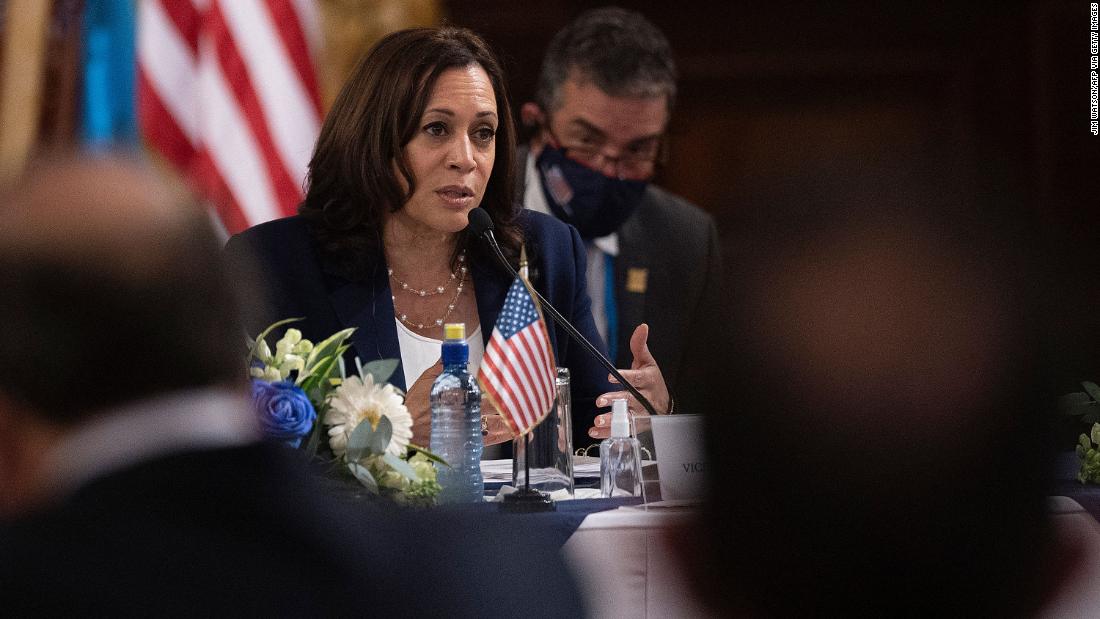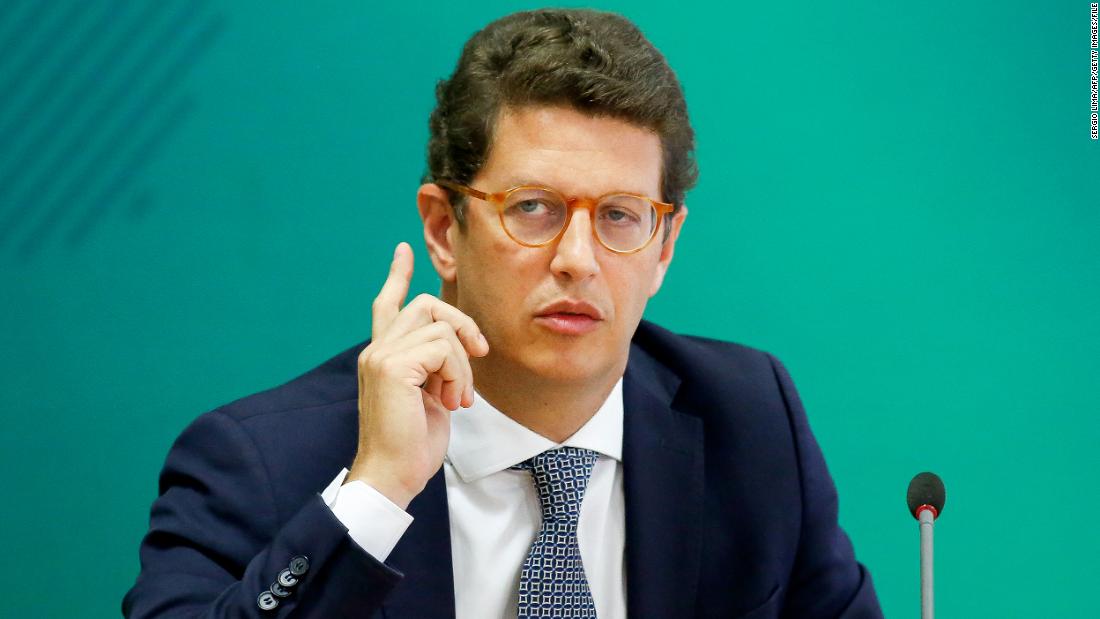American guns are a key driver in the migration crisis. When will the US address it?
This week, US Vice President Kamala Harris will spend two days south of the border, during her first international trip to Guatemala and Mexico to meet local leaders and help address the root causes of undocumented migration.

(CNN)This week, US Vice President Kamala Harris will spend two days south of the border, during her first international trip to Guatemala and Mexico to meet local leaders and help address the root causes of undocumented migration.
The official agenda is focused on economic development, climate and food insecurity, strengthening the rule of law and deepening bilateral law enforcement cooperation, but violence and the means of violence -- weapons -- seem to be the elephant in the room.
United States may be the ultimate destination for many migrants, but it is also the origin of many weapons employed in the violence driving them northward in the first place. On average, more than 500 firearms from the US cross the southern border each day. Yet for now, there's little sign that gun smuggling will be a priority at the Vice President's meetings in Guatemala and Mexico.
Armed violence is one of the prominent root causes that push men, women, and children to leave Central America and Mexico and head north. According to the NGO Doctors Without Borders, 62% of migrants arriving at the US southern border said they were exposed to a violent situation during the two years prior to leaving their home country, and three quarters of families with kids arriving at the border say violence, including forced recruitment by gangs, was a key reason for leaving.
About 70% of firearms seized by law enforcement in Mexico and 42% of those seized in Guatemala were first sourced in the US before being trafficked south of the border, according to data from the US Bureau of Alcohol Tobacco and Firearms (ATF) as of December 2019.
This flow of guns into Central America is known as the "iron river," and it is vast in scale; according to the Mexican foreign ministry, an estimated 200,000 guns are trafficked from the US into Mexico each year -- an average of more than 500 per day.
US authorities do not publish figures for the number of weapons believed to be trafficked, but between 2014 and 2019 the ATF traced more than 70,000 guns from Mexico back to the United States.
The US Government Accountability Office believes the Mexican estimate is the best available; in a recent report, it recommended US agencies such as ATF, Immigration and Customs Enforcement, Customs and Border Protection, and the State Department to increase data collection on weapons smuggling and, most importantly, to develop performance measures to assess the efforts in place to stem the traffic.
The US State Department has declined to detail whether gun smuggling is part of the Vice President's agenda and referred the question to the White House. CNN has reached out to VP Harris' office and is waiting for a response.
A spokesperson for the State Department however did tell CNN the Department is committed to working with Mexico to reduce the amount of illicit firearms, weapons parts, and ammunition crossing the US-Mexico border. In particular, the US provides training and equipment to the Mexican government and to the Mexican customs agency.
The problem no one wants to talk about
Experts say policymakers' discussion of the migration crisis often overlooks the source of the weapons exacerbating it.
"It's pathetic frankly how little attention is spent on this," says Adam Isacson, Director for Defense Oversight at the Washington Office for Latin America, a research and advocacy organization based in the US.
"You end up banging your head on the same barriers over and over again: it's like Groundhog Day... It's an issue that everyone knows it's there, but there's no action on either side," Isacson told CNN.
Isacson believes that the particularly fraught narrative around the issue of gun control in the United States -- often fiercely debated among party lines -- is one of the main reasons why leaders spend little time on the issue of guns being trafficked abroad.
Another reason is that most gun regulations are different from state to state, and federal officials responsible for foreign policy or international relations have limited influence on those rules. More than a third of the guns seized in Mexico and traced to the US by ATF were initially purchased in Texas, California and Arizona.
Ioan Grillo, the author of Blood Gun Money -- How America Arms Gangs and Cartels, echoes Isacson: "It's kind of mind blowing to me that it is an enormous quantity of firearms, year after year from the United States to Mexico and so much violence happening in Mexico, and it's frustrating that concrete actions are not taking place."
Grillo, who covered the drug war in Mexico for more than 20 years and is now a New York Times contributor, remembers when in 2012 then-Mexican president Felipe Calderon unveiled a 3-ton advertising board urging the United States to crack down on gun trafficking.
But if Calderon hoped to gain some momentum on this issue with his giant signpost, the tragic results of one such US attempt likely turned American politicians away from trying to tackle guns, Grillo said.
Operation Fast and Furious was a field operation by the Arizona Attorney General's office and the ATF allowing illegal gun sales to track the sellers and purchasers, who were believed to be connected to Mexican drug cartels. But it failed spectacularly -- more than 1,200 guns disappeared into criminal hands and one in particular was used to kill CBP officer Brian Terry in December 2010.
In the aftermath of the operation, 14 ATF and DoJ employees were referred for disciplinary actions and a former deputy assistant AG resigned. Eric Holder, who was Attorney General at the time of the scandal, became the first AG to be cited for contempt of Congress but didn't face criminal prosecution.
"Fast and Furious was just a disastrous operation, and one of its casualties was knocking the gun trafficking issue off the agenda," said Grillo pointing at the little progress or even discussion of it among US policymakers in the last ten years.
But now could be a time for change. The Biden presidency and a Congress under Democratic control have revitalized the gun debate in the US, which has potential for further consequences in Mexico and Central America.
"I see a huge window of opportunity on the guns issue: this administration has signaled they want to tackle this, and of course they are looking at it as the issue of guns domestically, but these two issues, gun control and gun smuggling, are linked" says Grillo.
Eventual measures such as requiring universal background checks, limiting the number of guns allowed in a single purchase or a ban US sales of assault weapons -- some of which are displayed with brutal results by the Mexican cartels -- could immediately impact the stream of guns across the border.
This March, the House of Representatives approved legislation that would require federal background checks on all commercial gun sales. The bill has been so far stuck in the Senate, but negotiations are ongoing and for the first time in years a clear chance of implementing regulation is within reach.
What's Your Reaction?






















.jpg)